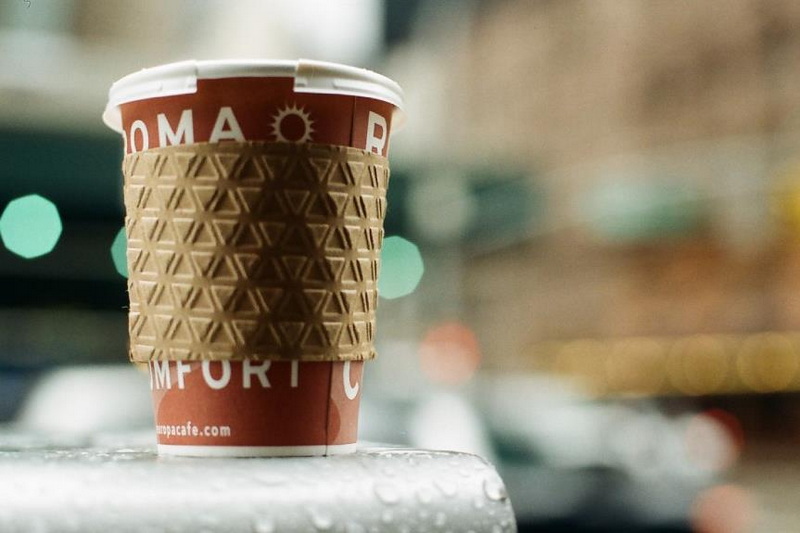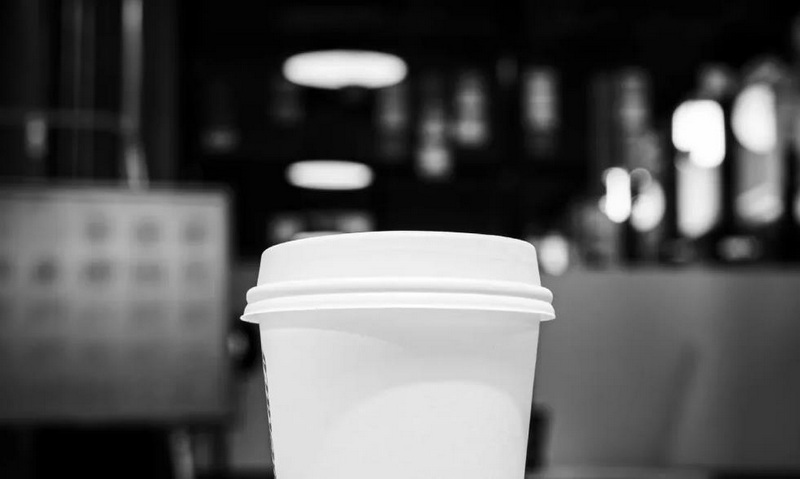
Content Menu
● Understanding Disposable Coffee Cups
>> Composition of Disposable Coffee Cups
● The Risks of Microwaving Disposable Coffee Cups
>> Chemical Leaching
>> Structural Integrity
>> Fire Hazards
● Are There Safe Alternatives?
>> Transfer to Microwave-Safe Containers
>> Use Microwave-Safe Disposable Cups
● Best Practices for Microwaving Beverages
● Health Implications
● Environmental Considerations
>> Eco-Friendly Alternatives
● Conclusion
● FAQ
>> 1. Can I microwave Starbucks cups?
>> 2. What happens if I accidentally microwave a paper cup?
>> 3. Are there any types of paper cups that are safe for microwaving?
>> 4. Can I use my regular ceramic mug instead of a disposable cup?
>> 5. What should I do if my drink cools down again after microwaving?
● Citations:
Microwaving disposable coffee cups is a common practice among coffee enthusiasts seeking a quick way to reheat their drinks. However, this seemingly simple action raises significant safety concerns that warrant a detailed exploration. This article will delve into various aspects of microwaving disposable coffee cups, including their safety, potential hazards, and best practices for reheating your beverages without compromising health or safety.

Understanding Disposable Coffee Cups
Disposable coffee cups are designed for convenience, allowing consumers to enjoy their beverages on the go. They are typically made from paper and may have a plastic lining to prevent leaks. While they are effective for holding hot liquids temporarily, their composition can pose risks when exposed to microwave radiation.
Composition of Disposable Coffee Cups
- Paper Material: Most disposable coffee cups are made from a thin layer of paper that provides structural integrity.
- Plastic Lining: Many cups have a polyethylene or wax coating to prevent leaks. This lining is not designed to withstand high temperatures and can melt when heated in a microwave.
- Metal Components: Some lids may contain small metal parts that can spark in the microwave, leading to potential fire hazards.
The Risks of Microwaving Disposable Coffee Cups
Microwaving disposable coffee cups can lead to several issues that may compromise both safety and the quality of your beverage.
Chemical Leaching
One of the primary concerns with microwaving disposable coffee cups is the potential for chemical leaching. When heated, the plastic lining can break down and release harmful chemicals into your drink. This poses health risks, especially if these chemicals are ingested over time. Research has indicated that substances like polyethylene (PE) used in cup linings can degrade under heat, potentially releasing toxins linked to hormonal disruptions and increased cancer risk[1][8].
Structural Integrity
The structural integrity of paper coffee cups is another significant concern. When exposed to microwave heat, these cups can warp, crumple, or even catch fire. The thin paper material is not designed for high heat, which can lead to spills and burns. Prolonged exposure to high temperatures can weaken the paper cup and increase the risk of it catching fire[4][9].
Fire Hazards
Microwaving paper products carries an inherent risk of fire. If the cup becomes too hot or is left in the microwave for too long, it can ignite. Additionally, if there are any metal components in the lid or cup, they may spark and create a fire hazard[1][10].
Are There Safe Alternatives?
Given the risks associated with microwaving disposable coffee cups, it is advisable to consider safer alternatives for reheating beverages.
Transfer to Microwave-Safe Containers
The safest option is to transfer your beverage from the disposable cup into a microwave-safe mug before reheating. Look for containers made from glass or ceramic that are explicitly labeled as microwave-safe. These materials are designed to withstand high temperatures without degrading or leaching harmful substances.
Use Microwave-Safe Disposable Cups
Some manufacturers produce disposable cups specifically designed for microwave use. These cups are made from materials that can withstand higher temperatures without melting or leaching harmful chemicals. Always check for a "microwave safe" label before using such products[5][7].

Best Practices for Microwaving Beverages
If you must reheat your beverage in a disposable cup, here are some best practices to follow:
- Check Labels: Always look for any microwave-safe markings on the cup before use.
- Avoid Overheating: Heat your beverage in short intervals (15-30 seconds) and check frequently to prevent overheating.
- Monitor Closely: Keep an eye on the cup while it's in the microwave to catch any signs of warping or smoke.
- Handle with Care: Use protective gloves or a towel when removing the cup from the microwave, as it may become very hot.
Health Implications
Microwaving paper cups can have potential health consequences. When heated, the plastic lining inside the cups may release harmful substances into your beverage. This raises concerns about whether paper cups are microwavable and safe for reheating[2][4].
Moreover, many consumers might not realize that while some paper cups are designed for hot liquids, they may not be suitable for microwave heating due to various factors such as coatings and additives that weaken under heat exposure[6].
Environmental Considerations
In addition to health risks, there are environmental implications associated with disposable coffee cups. Approximately 16 billion disposable coffee cups are used each year globally, with most ending up in landfills or oceans[3]. This raises questions about sustainability and encourages consumers to consider reusable alternatives.
Eco-Friendly Alternatives
Switching from disposable coffee cups to more sustainable options can significantly reduce environmental impact:
- Ceramic Coffee Cups: Made from natural materials like clay; these are reusable and dishwasher safe.
- Glass Coffee Cups: Non-toxic and easy to clean; glass does not retain flavors or odors.
- Stainless Steel Coffee Cups: Durable and lightweight; perfect for outdoor activities.
- Bamboo Fiber Coffee Cups: Biodegradable and compostable; these cups offer a sustainable option while being lightweight and easy to carry.
- Silicone Coffee Cups: Flexible and collapsible; these durable options are safe for both hot and cold beverages[3][4].
Conclusion
In conclusion, while it may be tempting to microwave disposable coffee cups for convenience, it is generally not recommended due to safety concerns related to chemical leaching, structural integrity, and fire hazards. For optimal safety and quality, always transfer your beverage to a microwave-safe container before reheating.
By following these guidelines and being mindful of the materials used in disposable coffee cups, you can enjoy your hot beverages without compromising your health or safety while also making environmentally conscious choices.

FAQ
1. Can I microwave Starbucks cups?
Starbucks cups are typically not designed for microwaving due to their plastic lining. It's safer to transfer your drink into a microwave-safe mug before heating.
2. What happens if I accidentally microwave a paper cup?
If you accidentally microwave a paper cup, it may warp, leak, or even catch fire if overheated. Always monitor it closely while heating.
3. Are there any types of paper cups that are safe for microwaving?
Some manufacturers produce paper cups labeled as "microwave safe." Always check for this label before microwaving any paper cup.
4. Can I use my regular ceramic mug instead of a disposable cup?
Yes! Regular ceramic mugs are usually safe for microwaving as long as they do not have metallic accents or decorations.
5. What should I do if my drink cools down again after microwaving?
If your drink cools down again after microwaving, consider using an insulated thermos or a double-walled mug that keeps beverages warm longer without needing repeated heating.
Citations:
[1] https://hotshotsleeves.com/coffee/can-you-microwave-paper-cups/
[2] https://mars-paper.com/microwaving-paper-cup/
[3] https://mannbiotech.com/top-6-eco-friendly-alternatives-to-disposable-coffee-cups/
[4] https://getbiopak.com/the-ultimate-guide-can-you-safely-microwave-disposable-paper-cups/
[5] https://www.imperialsupplies.com/item/9292637
[6] https://www.reddit.com/r/explainlikeimfive/comments/12prgp5/eli5_the_danger_of_paper_coffee_cups/
[7] https://mcdonaldpaper.com/blog/top-3-alternatives-take-out-paper-cups-2023
[8] https://pandopak.com/can-you-microwave-a-paper-cup/
[9] https://gmz.ltd/can-you-microwave-paper-coffee-cups/
[10] https://www.mochasandjavas.com/is-it-ok-to-microwave-paper-coffee-cups/

















